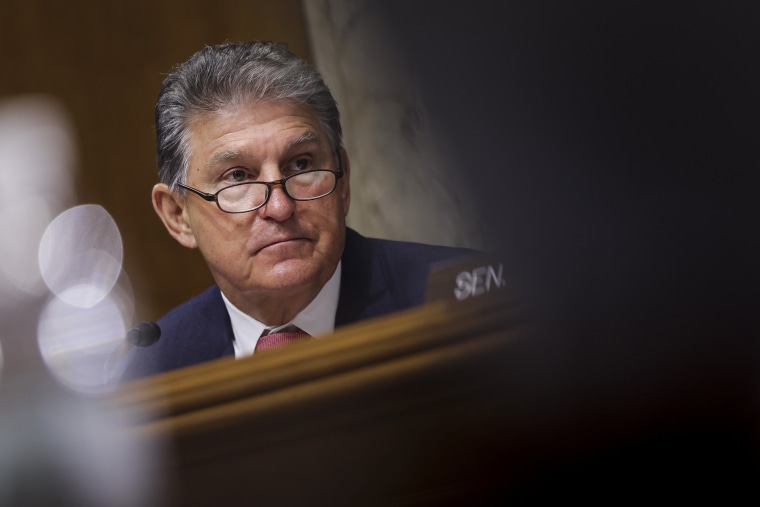When Democratic leaders began discussions about a possible Build Back Better package last year, there was some preliminary talk about a transformative bill totaling $6 trillion over 10 years. As the talks continued, that total was negotiated down to $3.5 trillion. Or maybe $1.8 trillion. Make that $1 trillion.
As the legislation’s ambitions narrowed in recent months, the prospects for success appeared to improve. Democrats worked on the framework Sen. Joe Manchin said he wanted — a bill that would combine a prescription drug plan, new measures to address the climate crisis, and tax reforms — and after the Congressional Budget Office delivered good news to the party two weeks ago, there was cautious optimism about a breakthrough victory.
The Washington Post’s Greg Sargent reported that the details on climate policy were very nearly complete, with negotiators’ haggling “down to minor points.”
All of which made it that much more brutal when the conservative West Virginia Democrat scuttled his own deal, telling party leaders that he’ll accept the part of the package that he likes — helping consumers by allowing Medicare to negotiate lower prices on prescription medication — but not the climate or tax elements that Democrats have prioritized.
To hear Manchin tell it, some of the reporting has painted a misleading picture. The senator appeared on a radio program on Friday morning and tried to make the case that position is nuanced: He said that he’d told Senate Democratic leaders if the party wants to advance legislation ahead of the August recess — a top White House priority — they’ll have to go with a bill that focuses on drug prices and health care. If, however, they also wanted a climate bill, Democrats would have to wait — until after Manchin saw next month’s inflation data, at which point he’d think about it anew.
For Democratic leaders, this isn’t a credible option, not only because Manchin’s request was unserious — the future of U.S. climate policy should not hinge on one senator’s perceptions of a monthly inflation report — but also because the calendar is not on the party’s side. Democrats are eager to get a semiconductor bill through Congress quickly, as well as a reconciliation package before the Aug. 8 break, ahead of a budget vote in September.
But timing is only part of the bigger picture: With Manchin backing away from the framework he endorsed, many Democrats concluded that there simply wasn’t any point to holding another month of talks with a senator who doesn’t seem to want a deal. Put simply, the party no longer believes the West Virginian is negotiating in good faith, so they’ve decided to stop trying.
The party’s patience has run out.
It led President Joe Biden to issue a written statement on Friday afternoon, effectively telling his congressional allies to take Manchin’s deal on health care policy, at which point the White House will try to act unilaterally on climate.
“Action on climate change and clean energy remains more urgent than ever. So let me be clear: if the Senate will not move to tackle the climate crisis and strengthen our domestic clean energy industry, I will take strong executive action to meet this moment. My actions will create jobs, improve our energy security, bolster domestic manufacturing and supply chains, protect us from oil and gas price hikes in the future, and address climate change. I will not back down: the opportunity to create jobs and build a clean energy future is too important to relent.”
The package Manchin is apparently prepared to accept is a plan to reduce the cost of prescription drugs, coupled with expanded Affordable Care Act for two years. (The savings from the former are far larger than the costs of the latter, but the conservative Democrat reportedly wants to direct more money to deficit reduction.)
We can scrutinize a bill in more detail once it’s taken shape, but it’s worth emphasizing that if this is the reconciliation deal the party settles on, it will be a small fraction of the signature agenda Biden envisioned. That said, it would also deliver a wildly popular proposal ahead of the midterm elections, while simultaneously (albeit temporarily) defusing a political bomb: the prospect of rising ACA costs for consumers.
Watch this space.
Related:

